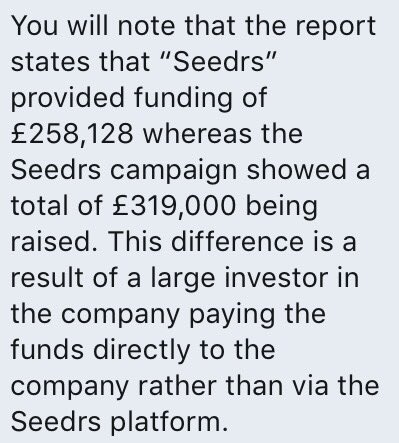Both Seedrs and Crowdcube claim to have set up workable secondary markets. We have an opinion, for once!
A workable secondary market is the holy grail for equity crowdfunding. Being able to release investors from their too often worthless paper share certs and give them a return for their risk, would make the whole game work.
However the key word here is workable. Vanity projects set up by the two retail facing ECF platforms, Seedrs and Crowdcube, wont be.
Seedrs -
Their model is to set the share price and have a week long 'sale' once a month. A similar idea to that operated by Asset Match, who sold shares for Brewdog last year. Only existing Seedrs investors can partake.
Lynn says the reason for them setting the price is to prevent wild swings - either up or down. Apparently EY, who we can all remember as the accountants involved with Bernie Made-OffWith- MaMoney, have stated that Seedrs use a verifiable system to value these shares. It's the same system that tries to make us believe that Seedrs investors are in fact seeing considerable ROI; despite the facts. What EY know about starts ups should be written on their charge sheet.
In a normal market, buyers set the price via demand. So investors know that even if the company doesnt turn out as predicted, they may be able to sell their shares and recoup some of their money even at a loss. This is not the Seedrs vision.
Time will tell, but Lynn's insistence that there will be no down rounds suggests he has his head in the clouds. Valuations are, I think we can all agree, too high on both platforms, so putting them higher for the secondary market is not going to work. Without buyers, Seedrs have no market.
Crowdcube have taken a different route. They claim to have created a secondary market in their PR. But on checking, they havent.
Two Crowdcube companies recently offered shareholders a way to sell their shares - Celixir and Mettr Technologies. Both were exceptional cases in that they had received large inward investments from overseas and these new investors didnt want to manage a whole raft of mini SH's at the AGM. Celixir (Cell Therapy) had claimed on its Crowdcube pitch -
Cell Therapy is scheduled to complete a public listing on Jan 14th 2015 on the Euromarket GXG exchange at an initial valuation of £100M (~£50 per share). This Crowdcube funding is the final private placement prior to listing with a pre-IPO discount of over 25% at a £64M valuation (£37.00 per share).
Needless to say, this never took place.
Its certainly true that shareholders in both companies have seen very good returns. But to understand if this is a trend, as Darren Westlake claims in a PR piece
here, or a couple of exceptions, you need to know all the facts. It's similar to claiming that the recent Brewdog deal, where shareholders could sell around £500 worth of shares only, actually gave a ROI of 2800%; as the Brewdog Capman claimed. Of course it didnt - to get a return you need to be able to sell your holding not a tiny percentage of it. Brewdog shareholders cannot sell their remaining shares as there is no market. Darren does claim precisely this but who is surprised anymore?
Real secondary markets need to trade at fair prices set by buyers and based on known facts. Neither Crowdcube nor Seedrs seem able to produce either. Buyers will not be fooled and there are no perks this time around, so why would they bother? There will be the occasional exception to prove the rule.
There is of course the whole issue with S/EIS and the 3 year rule. Selling your shares before 3 years is up will mean payments to HMRC and the loss of the CGT avoidance - although the latter may just be wishful thinking. It could be a bit of minefield especially with the Crowdcube single investor model.
Someone somewhere needs to come up with a better model. We are working on it.




























